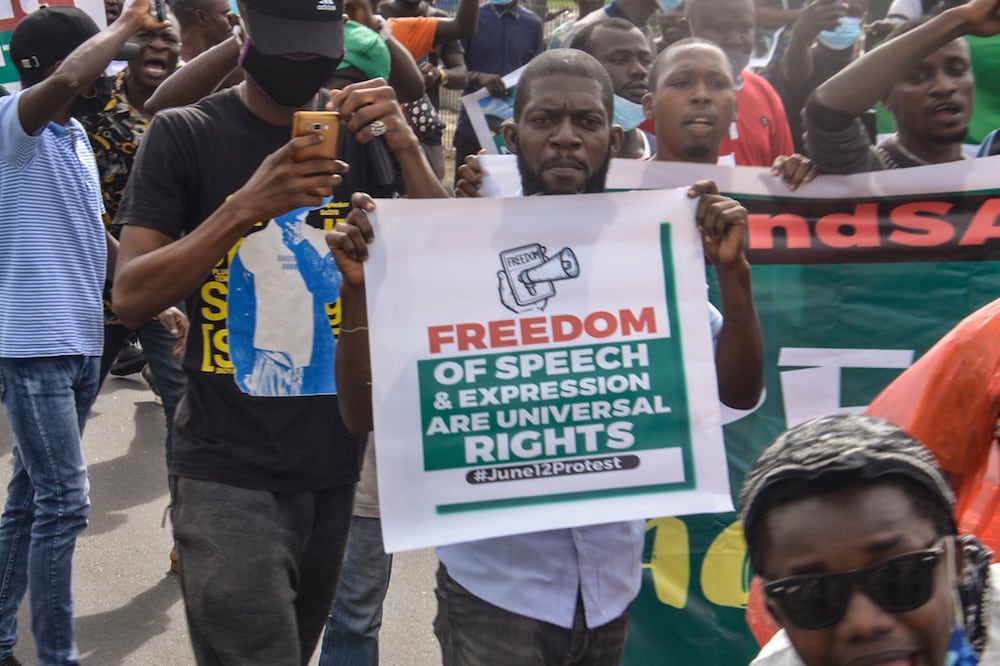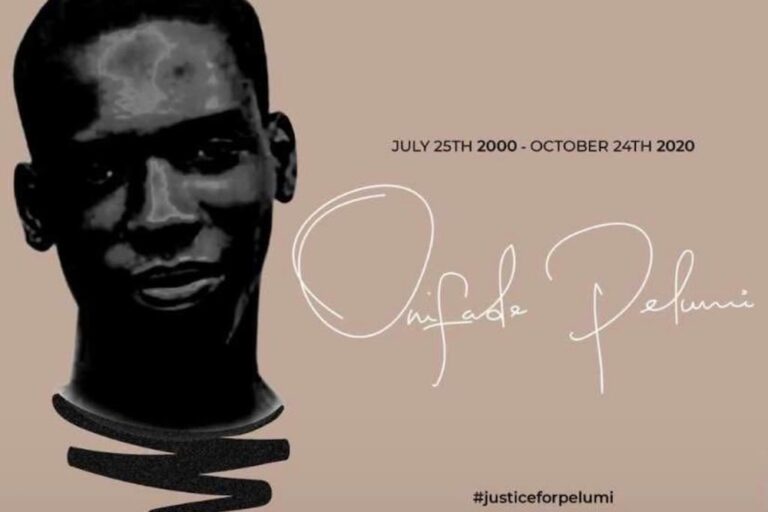Organisations from across the globe write to Nigerian President Muhammadu Buhari urging him to reconsider the decision to ban Twitter and restore access to the platform.
This statement was originally published on paradigmhq.org on 26 June 2021.
Your Excellency, President Muhammadu Buhari GCFR
Cc:
The Vice President,
The Senate President,
The House of Representatives’ Speaker,
The Minister of Information and Culture,
The Minister of Communications and Digital Economy and
The Minister of Justice
We, the undersigned organizations working to ensure that human rights are protected, write to appeal to you to rescind the indefinite suspension on the social media network, Twitter which was announced by the Federal Government of Nigeria on 4 June 2021.
Twitter, just like many other digital and social media platforms, has become a space for Nigerians to communicate, seek and disseminate information, engage in public debates and legitimate businesses. Like many other governments across the globe, the Nigerian government has leveraged social media platforms to issue critical public information. A recent demonstration of this is the use of Twitter by the Nigeria Centre for Disease Control (NCDC) to issue information related to the COVID 19 pandemic. Currently the NCDC Twitter account has a following of 1.1 million, This is an acknowledgement of the importance of social media in reaching a significant proportion of the Nigerian population.
Since the suspension of Twitter services, Nigerians have not only been impacted socio-economically, but have also experienced violations of the freedom to exercise their human rights online.
Growing Nigeria’s digital economy is one of the stated priorities of the current administration which is to help put an end to poverty and mitigate Nigeria’s unemployment challenges.
However, this recent suspension by the current administration shows otherwise as many Nigerians who use Twitter for legitimate business purposes have been unable to do so. Research by Netblocks has shown that the Nigerian economy loses at least ₦2,177,089,051.00 (US$ 6,014,390.00) each day, since the indefinite suspension was announced.
With respect to the human rights impacts of the indefinite suspension, the rights provided for under Chapter Four of the 1999 Constitution of the Federal Republic of Nigeria (as amended) including the rights to freedom of expression and opinion, press freedom, access to information, and freedom of association and peaceful assembly have been adversely impacted as an estimated 40 million Nigerian users are on Twitter exercising their rights to engage,organise and mobilise at national and global levels.
In addition to the rights provided for under the 1999 Constitution (as amended), Nigeria has the obligation to promote, protect and fulfil its obligations under international human rights law. For example, with respect to the right to freedom of opinion and expression, Nigeria is a party to the International Covenant on Civil and Political Rights (ICCPR) which provides under its Article 19(1-3) that the rights are protected ‘regardless of frontiers’ with limited permissible restrictions.
These restrictions are required to be:
- Legal i.e. provided for by a law which is clear and sufficiently precise as to the extent of the limitation;
- Legitimate i.e. done to protect the rights of others;
- Necessary in a democratic society i.e. no other means exists to address the harm in question and
- Proportionate: i.e. the limitation on the right must not be overboard.
In assessing the requirements for necessity, legality, legitimacy and proportionality the following can be noted, first, there is currently no clear and sufficiently precise law in Nigeria that provides for such action by the Nigerian government. Second, the Nigerian government is yet to demonstrate how the suspension protects the rights of others. Third, the Nigerian government is yet to show that it has used the ‘least intrusive means’ of addressing the harm purported caused before the suspension. Fourth, the Nigerian government has failed to demonstrate that its actions to suspend Twitter’s operations was not excessive and over-reaching.
These show that since the indefinite suspension took effect on 5 June 2021, there has been no credible evidence that it was effective at achieving any legitimate aim. If anything, it has negatively impacted Nigeria economically and further infringed on the rights of many Nigerians.
It is also important to note that these permissible restrictions allowed under international human rights law must be jointly fulfilled and not in parts. For example, it is still a violation of the right to freedom of expression if any of the requirements are complied with and others are not.
These requirements seem to be the basis of the recent ruling of the Court of Justice of the Economic Community of West African States (the ECOWAS Court) on 22 June 2021 restraining the government and its agents,
from unlawfully imposing sanctions or doing anything whatsoever to harass, intimidate, arrest or prosecute Twitter and/or any other social media service provider(s), media houses, radio and television broadcast stations, the Plaintiffs and other Nigerians who are Twitter users, pending the hearing and determination of this suit.
Given this background, we request that the Federal Government of Nigeria should:
- Restore access of all Nigerians to Twitter;
- Ensure that the Internet, including social media platforms like Twitter are open, free, and accessible;
- Engage all stakeholders including the civil society, academics, human rights institutions, the private sector on the best approach to social media regulation and
- Put measurable and specific processes in place to promote, protect and fulfil all human rights online and offline.
Kindly let us know if you need additional clarification on our letter.
Sincerely,



